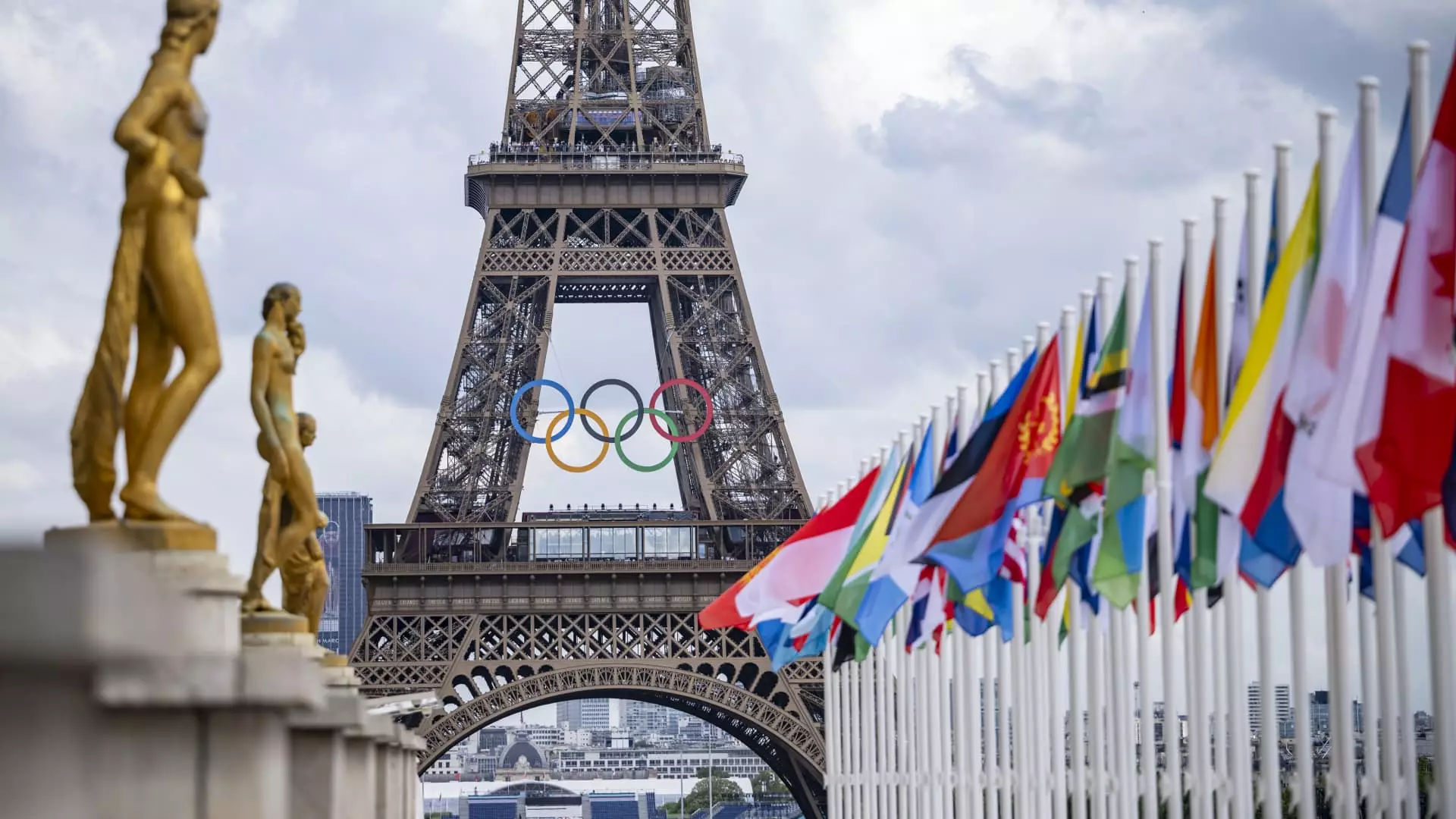The Olympic Games and other mega events like Taylor Swift’s Eras tour have historically caused a surge in prices in industries associated with tourism, such as hotels and airline tickets. This rise in demand from the influx of visitors typically leads to an increase in consumer prices. However, according to UBS, most French consumers are not likely to feel the direct impact of these price surges. The method used to calculate consumer price changes may pick up the spiking costs in certain industries, providing a distorted impression of overall inflation.
The Eras Tour, for example, boosted hotel revenue in cities across the U.S. where Taylor Swift was performing. Similarly, U.K. hotel prices saw an increase in June, coinciding with Swift’s performance at Wembley Stadium. In Paris, the Summer Olympic Games are creating a similar phenomenon, with a surge in hotel occupancy levels and prices. However, the tourists flocking to Paris for the Games are not representative of the average French consumer. Despite the price increases in the hotel industry, most French consumers remain unaffected by these surges, as they are not actively seeking to stay in Paris during this time.
Impact on Tourism and Ticket Sales
The Olympic Games in Paris have drawn a significant number of tourists, with a notable increase in visitor numbers compared to previous years. The Paris tourist office reported a total of 1.73 million visitors in Greater Paris during the first week of the Games, with a substantial portion being international tourists. The Games have also seen record ticket sales, surpassing previous records set by past Olympic events.
While the short-term impact of the Paris Olympics on consumer prices may be limited to certain industries, the long-term economic impact remains uncertain. Analysts predict that the Games could generate significant economic value for the city of Paris, with estimates ranging up to $12 billion in economic impact. The International Olympic Committee suggests that the economic impact of the Games is substantial and leaves a lasting impression on the local economy.
The IOC’s Agenda 2020 reforms have aimed to make the Olympic Games more economically sustainable. By utilizing preexisting venues and adopting cost-saving strategies, the Paris 2024 Games are projected to cost less than previous Olympics. Economists expect that these sustainability measures could mark a turning point for the Olympic movement, reducing unnecessary costs associated with hosting the Games.
While mega events like the Olympic Games and major concerts may lead to temporary price surges in certain industries, the overall impact on consumer prices in France may be less significant than perceived. The distorted impression of consumer price changes due to methodological calculations could mask the true effects of these events on the economy. However, the long-term economic impact of hosting such events remains a topic of ongoing analysis and debate.


Leave a Reply